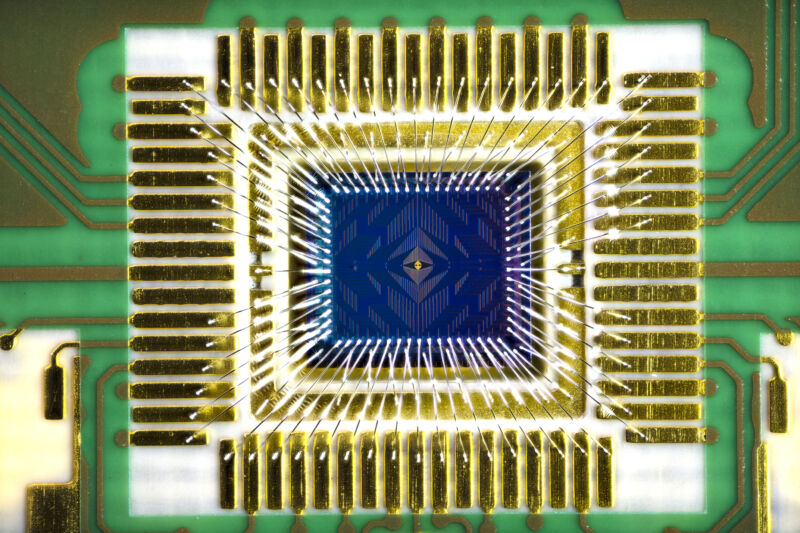Intel to start shipping a quantum processor

Enlarge / The Tunnel Falls chip in its natural habitat (dilution refrigeration hardware not shown). (credit: Intel)
Intel does a lot of things, but it's mostly noted for making and shipping a lot of processors, many of which have been named after bodies of water. So, saying that the company is set to start sending out a processor called Tunnel Falls would seem unsurprising if it weren't for some key details. Among them: The processor's functional units are qubits, and you shouldn't expect to be able to pick one up on New Egg. Ever.
Tunnel Falls appears to be named after a waterfall near Intel's Oregon facility, where the company's quantum research team does much of its work. It's a 12-qubit chip, which places it well behind the qubit count of many of Intel's competitors-all of which are making processors available via cloud services. But Jim Clarke, who heads Intel's quantum efforts, said these differences were due to the company's distinct approach to developing quantum computers.
Intel being IntelSo far, both the large companies and startups that are developing quantum computers have been focused on a single technology (transmons, trapped ions, etc.) that they're betting they can be the first to scale to useful qubit counts and error rates. To the extent that they have customers, those customers are simply developing the expertise needed to use the processors should they ever become viable. That can easily be achieved by accessing the hardware via a cloud service and using a software developer's kit instead of directly controlling the hardware. So, that's what nearly everyone other than Intel has been focused on providing.